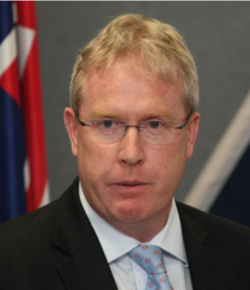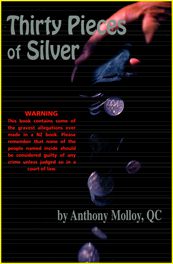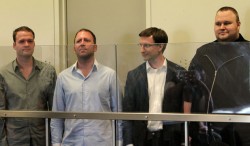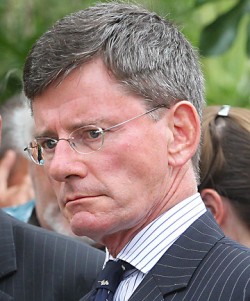The Kim Dotcom saga is coming to the end, or rather the begining of the end. With much of the preliminary dealt with last Monday, albeit unsatisfactorily, the extradition proper has commenced with a hearing that the United States Department of Justice has long been waiting for.
Team LF have had very little to say with respect to this case primarily because we have already noted our opinion of the New Zealand government and it’s police forces behaviour back in 2012. At around the same time we also ran a story that pointed Dotcom to the possible, rather likely, involvement of the country’s GCSB.
This case has been a farce from the very start and in our view the Police raid, the day the New Zealand police unleashed their scripted Hollywood assault on Dotcoms home, North West of Auckland was not where it had all started.
The hunt for Mr Dotcom and his colleagues had in our view commenced long before the day of the raid. In fact LF has long suspected that various commercial players behind the scenes had been working on their strategy since at least 2008.
These same players had also undoubtedly taken an interest in New Zealand for reason of the country’s legal framework, a structure that would in the fullness of time become a cornerstone of the US government’s attack strategy.
Prosecutorial misconduct, the police seizure of identified defense financial resources.
New Zealand law enforcement, arguably more than any other Commonwealth nation, like United States policing agencies, including the Department of Justice and the Federal Bureau of Investigation (FBI), has had a habit of abusing legal process and in some cases knowingly committed serious breaches of criminal code in order to achieve their own, often nefarious, objectives. News of the most recent US case being reported just last month;
Judges Blast Department of Justice Over ‘Shocking’ Prosecutorial Misconduct (15 August 2015)
The latest case, at least in the New Zealand context, are the tactics employed by police during the so-called investigation and prosecution of the Red Devils motorcycle club, who police had alleged where an organized criminal group (in Kiwi parlance “Gang”). In that case however Justice Collins eventually saw the obvious, and also saw fit to call the police out on the behaviour, citing likely criminal conduct on the part of the investigating officers; which in itself was an extreme departure from the courts usual, some would argue expected, behaviour.
Police behaviour in Red Devils gang case possibly criminal, says judge (23 May 2015)
In general terms where a police force or prosecution departs from expected and accepted principles or conduct, in particular their bad or even criminal behaviour surrounding legally required procedure, before, during or after an investigation and or prosecution then this behaviour is likely to fall into a category of prosecutorial misconduct.
In it’s simplest form prosecutorial misconduct can be the laying of an inordinately high number of criminal informations, knowing that there is no evidence which might result in conviction, or in the worst case scenario, that police know the accused is innocent of all charges, the strategy being that if you throw enough shit some of it is bound to stick.
This old and rather crude strategy has over the past three decades been a favourite with the New Zealand police. Jurists in most other Commonwealth jurisdictions have now long been vary wary of such abusive prosecution tactics, more often than not throwing out or staying the matter before it even gets to trail, but not in New Zealand. In New Zealand this behaviour is still allowed, in fact it is common place in the criminal courts.
There are of course various other forms that prosecutorial misconduct can take, arguably far more sinister forms, such as the very complex misuse of law in pursuit of a conviction, in this area New Zealand prosecutors have committed some of the most egregious offending in recent times, the George Gwaze case being but one example of that abuse of laws and long held safeguards such as the double jeopardy rule, resulting in the circumvention of statutory protections.
These tactics are of course employed at the tail-end of a case, during the trial itself.
There are however abuses, more often than not serious criminal behaviour on the part of police, committed during the actual process of any so-called investigation. We use the term “so-called” because in many, if not most, of these cases the police investigation is merely a front for the police and or prosecutions predetermined finding or worse, an agenda that is often driven by politics or malice.
The most common of these stratagems is for police to attack the targets financial wellbeing, their assets particularly any cash held in bank accounts. The aim of this strategy is simply to prevent the target mounting a proper legal defense to the prosecutions maliscious attack.
This strategy is also one which is favoured by the New Zealand police, particularly the current crop of senior officers, most of whom cut their prosecuting teeth during the now notorious and seriously corrupt 1980’s and 1990’s.
In fact, prior to the introduction of New Zealand Criminal Proceeds Recovery Act (2009) police officers often acted well outside the law when participating in conspiracies to destroy their intended targets net worth, often prior to even beginning any investigation and or prosecution.
This was often achieved by feeding false and or malicious information to banks, insurers and other financial institutions, accessing business and or bank account records without search warrants, these are just some in a long list of tactics employed by corrupt police officers in the period prior to 2009. This aspect of the FBI’s own domestic strategy was also further lubricated for used off shore in 2010 with the introduction of New Zealand’s Criminal Proceeds (Recovery) Act.
In fact the New Zealand legislation, it could be argued, is modeled on very similar laws that the United States had introduced almost three decades ago in their so-called war on drugs, laws that have long since been employed by United States policing agencies to circumvent and abuse the civil and legal rights of Americans.
These laws had become so widely abused by some State law enforcement agencies that the federal government Attorney General Eric Holder was forced to repeal some of the regulations in January this year following an extensive Washington Post investigation published during September 2014
Washington Post Investigation;
Police intelligence targets cash
Asset seizures fuel police spending
Highway seizure in Iowa fuels debate about asset-forfeiture laws
Washington D.C. police plan for future seizure proceeds years in advance in city budget documents
Activists and Hill staffers meet to discuss curbs to asset-forfeiture laws
House lawmaker questions civil seizures in letter to Attorney General Eric Holder
D.C. Council votes to overhaul asset forfeiture, give property owners new rights
Federal officials issue new code of conduct for police highway seizures
Lawmakers urge end to program sharing forfeited assets with state and local police
Holder limits seized-asset sharing process that split billions with local, state police
How police spent billions seized from Americans
Justice clarifies new limits on asset forfeiture involving local, state police
US Attorney General Eric Holder has of course gone nowhere near far enough, in only removing the State jurisdictions ability to use the more easily applied Federal statutes for search and seizure. The federal laws are however still being abused, the Dotcom case more evidence of that fact, and the legal campaign being waged on Government by civil rights and legal advocates to have all such laws repealed continues. In fact arguably if the US had not been able to seize Dotcoms assets then it is more than unlikely they would have attempted to experiment with the criminal prosecution of what is after all esentially a civil matter under US law. (See: No grounds to extradite Kim Dotcom, says Harvard Law professor Lawrence Lessig)
Moreover, those same US seizure laws have also been used over the years as a way for authorities to prevent victims seeking legal redress for police’s often criminal and conspiratorial behaviour.

Kristy McDonald QC, another of New Zealands thoroughly corrupt crown lawyers, well versed in the dark art of prosecutorial misconduct. In the Dotcom case McDonald made some serious cash representing almost every government agency that had engaged in corrupt behaviour
Prior to the introduction of these laws in both the United States and New Zealand lawyer’s groups and civil rights organizations obviously expressed concerns with the introduction of the laws, repeatedly warning of legislators of the potential for prosecutorial misconduct, warnings that both New Zealand Parliamentary legislators and the US Congress completely ignored.
Evidence of the willful, often malicious, abuse of these laws by US law enforcement agencies has been mounting since their introduction, as have the law suits filed by the now hundreds of effected individuals and civil rights groups representing them.
These laws were implemented using the argument that they were intended to capture large organized criminal groups, drug trafficker’s, gun runners and the like, certainly not the likes of Dotcom. The reality however has, as was warned of at the time, prior to their becoming law, been something quite different with the vast majority of those affected being individuals, many without so much as a blemish, let alone a criminal record.
Innocent individuals have been caught up in long-running legal stoushes with US police, including the FBI, federal and state prosecutors, further abusing these victim’s legal and Constitutional rights and civil liberties, in concerted efforts to avoid legal sanction and civil damages torts themselves.
The New Zealand statute in fact goes even further than the Unites States laws, Under New Zealand law there is actually no requirement for a criminal conviction to have been entered before assets and funds can be seized by the authorities.
Interestingly, albeit coincidentally, New Zealand’s High Court has as recently as last week turned down one such application by that country’s police, to seize assets and bank accounts which they have alleged belonged to tax fraudster Xiao Zhu, the judge in that case determining that police had provided insufficient evidence to support their seriously flawed argument that the property in its entirety, which represents many times the possible proceeds, should immediately be seized, forfeited to the New Zealand Governments coffers as proceeds of crime. (see: Police lose bid to seize ‘unexplained’ $500K, also see: New Zealand Commissioner of Police v Zhu [2015] NZHC 2175 (9 September 2015))
This latest case may be an apparition, but it could also be significant, perhaps even signaling the Courts growing concern, having maybe wised up, following the Dotcom raid and seizures, an unwillingness to take police at their word and beginning to adopt a more rigid evidential threshold before acceding to the willy-nilly police applications.
Perhaps the most telling of the Dotcom court cases, at least outside the United States and New Zealand, has been the litigation underway in the Hong Kong jurisdiction. Clearly Hong Kong’s reputation as an economic power house and leading Asian banking hub was and remains at risk of being brought into question with the FBI and US Department of Justices behaviour prior to their seriously questionable unilateral demands for asset seizures prior to a criminal conviction being obtained. This dawning reality may have played a role in the cracks in the US DoJ’s becoming more obvious to Hong Kong’s judiciary on closer inspection and certainly its regionally autonomous Government.
As afore said the actions of both the FBI and the New Zealand police have been akin to daylight robbery, the unprecedented Hollywood inspired raid on the businessmen’s home, the immediate seizure of his assets and bank accounts, all without trial or criminal conviction for any offence whatsoever. All of which behaviour had been accorded the green light, leveraged off allegations made by Hollywood moguls, their lawyers and political lobbyists, many of which are extremely close to the US political classes and the White House itself.
It has always been LF’s position that the seizure and immediate incarceration of Dotcom at Mt Eden was intended to serve one purpose alone, to deprive the man and his co-defendants of the right to a fair trial by also depriving them of the funds required to mount the defense necessary.
There is absolutely no doubt that this aspect of the polices behaviour, New Zealand and US agencies, but more particular the New Zealand police with their prior knowledge of the FBI’s intentiona, having signaled their duel strategy of deprivation of liberty, evidenced by the almost exclusive involvement of the New Zealand polices, at the time, new Financial Crime Group.

Detective Inspector Peter Devoy. In 2009 he was seconded to Police National Headquarters in Wellington to establish the Financial Crime Group. This is a new ‘service centre’ within New Zealand Police which has been formed on the back of strengthened Criminal Proceeds and Anti-Money Laundering legislation. Civil forfeiture powers to recover the assets and profits of crime are now available to Police.
That without an adequate defense, which authorities knew would require substantial funding, the extradition of Dotcom and his co-defendants by the United States Department of Justice would have faced few if any obstacles, thus the extraditions would have been dealt with quickly with little if any media coverage, better still without a political risk to the New Zealand’s National party, John Key, the ministers responsible or his Government.
There is also, given the circumstances, little doubt that this orchestrated behaviour had been months, possibly even years, in the planning, that it was premeditated and very well thought out, the intention being to deprive Kim Dotcom and his fellow defendants of the due process they were entitled too and ultimately, without the funds required to adequately defend themselves, justice itself.
Had Dotcom remained incarcerated in New Zealands Mt Eden prison, as Police and Crown law had undoubtedly intended from the outset, then immediately extradited and subsequently forced to mount an appeal from the United States, it would have been almost impossible for Dotcom to have initiated the investigations and court appeals which have now become a part of New Zealand’s political and legal landscape. The media would also have lost all interested and the politicians involved would have been able to forget that Dotcom had even existed, as rotting in a United State Federal Penetentiary without the financial resources required it would have been very unlikely that Dotcom could have posed any real threat to their political careers or personal bank balance.

Detective Inspector Grant Wormald, an OFCANZ police commander who in the opinion of many lawyers and team LF perjured himself whilst giving evidence. New Zealand’s very bent IPCA has only just cleared Wormald of that perjury. LF is of the view that Wormald should face criminal charges, even if that requires a private prosecution to bring him before a court of law. Wormald was also involved in the corruption that engulfed police in the recent red devils case. That case was thrown out as a result of another case of police criminal abuse of the law,
What’s more, without any doubt whatsoever, there would not have been the investigations into the New Zealand police’s extraordinary criminal behaviour, the involvement of politicians such as John Banks, Government Ministers such as Nathan Guy and Simon Power and corrupt civil servants the likes of Ian Fletcher, including the Immigration Department and the unlawful participation of the country’s security Intelligence agencies, the SIS and GCSB.
Unlawful and unsavory relationships that the New Zealand police had long fostered and benefitted from, without the publics knowledge, in contravention of the country’s existing criminal code, a relationship that was a key driver behind the New Zealand governments, almost unprecedented, rush to legalize what had previously, at the time of the Dotcom raids, been criminal behaviour, regularly engaged in by the country’s police and Crown law office.
Back in 2012 LF in fact raised the issue of the US and Kiwi political connections and Hollywood’s role in the assault on Dotcom. At around that same time LF also ran a story that again exposed the New Zealand police’s complicity in illegitimate and clandestine relationships with the country’s security intelligence service, the GCSB.

New Zealands top spook, GCSB director Ian Fletcher. forced out of the Australian civil service for his corrupt behaviour only to be taken on immediately by NZ prime minster John Key. After all thats what old school friends are for isn’t it?
According to the New Zealand Herald journo David Fisher Monday last, Fairfax New Zealand has published a story that, by Fishers account at least, again canvassed the timing of the New Zealand Governments dealings with Hollywood moguls and the subsequent tax breaks Prime Minister John Key pushed through at the bidding of a man that many expat Kiwi’s would see as a traitor to the country and its economic interests. Peter Jackson, a man that also subsequently received one of those National Party life membership awards for his efforts in helping to attach Hollywood to the Kiwi tax payers tit, a so-called “Knighthood”, worth a great deal if minted and handed out in Britian, but like the Greek Euro, worth little more than cheap cosmetic jewellery when dished out to political cronies by any New Zealand government.
“My reaction to Peter Jackson is really my reaction to them sanctifying him – if he farts it makes the front page of the fucking newspaper! I didn’t mind him being made a Sir, I objected to him being made an icon of the arts, because I don’t think his film-making is art. I thought he should have been made an icon of industry or something … ” – Geoff Murphy (renowned Kiwi film director “on the madness of Hollywood” 26 Sept, 2015)
The New Zealand politicians, the government, its intelligence community, the police force, Attorney General and Crown Law office have worked tirelessly on this case, Running up millions of dollars in expenditure, a bill that is being foot by the humble New Zealand taxpayer, benefitting absolutely no one other than a handful of Hollywood studios, the moguls who own them and a thoroughly corrupt foreign Governments bureaucracy.
Absolutely none of this unprecedented effort has been in the service of justice however.
Rather, every effort has been directed at papering over the large cracks that have appeared in the rule of law in New Zealand, concealing the criminal behaviour of New Zealand’s police force, Crown law and the outright corruption of many of the country’s government agencies, politicians and senior civil servants.
No matter how New Zealand’s politicians spin the behaviour of the country’s police and courts, and of course their own duplicity, New Zealand has for the past four years run the risk of becoming a pariah state, written off as a seriously risky place to invest in, that any ambitions the country’s banking and finance sector may have once harboured, believing that they could become a financial hub competing with Australia can now be kissed goodbye.
New Zealand was in fact warned by one of their own a few years back. In 2011 leading barrister and internationally renowned legal tax and business expert, Dr Anthony Malloy QC, publically exposed and decried the flawed thinking and weaknesses underpinning New Zealand’s justice system, in particular it’s courts and the country’s interfering politicians. Malloy is, as perhaps could be expected, no stranger to controversy, having in 1998 written a book, Thirty Pieces of Silver, an expose that sheds a great deal of light on the corruption within New Zealand’s government and its legal circles:
Law system a ‘laughing stock’
May 22, 2011
New Zealand is making a hash of its legal structures, tinkering with legislation and losing its reputation as a place where the legal system can be trusted to produce authoritative and internationally respected judgements, Tony Molloy, QC, said last week.
And that combination could torpedo any ambition John Key’s government has left to promote New Zealand as an international financial services centre.
“It is making New Zealand an international laughing stock at a time when we are aspiring to recognition as a recognised international trust and funds jurisdiction,” Molloy said in a paper presented to a forensic accounting conference in Auckland.
In his “Trust Busting” paper, Molloy cited a series of cases that he said “raise disturbing questions of systemic integrity”.
He complained about New Zealand’s “one judge fits all” approach to law, where the legal profession fails to insist counsel should not argue cases in areas where they have no competence, and parliament fails to insist judges sit on cases only where they have acknowledged expertise.
“Parliament continues to fail to organise the High Court into divisions dealing with crime, family law, equity [trusts and fiduciary matters] and other general litigation,” Molloy said.
He compared the approach to having a gynaecologist performing brain surgery, or electrical engineers designing viaducts. That judges are allocated “like cabs off a rank”, he said, is “deplorable”.
Molloy said counsel would be in breach of their duty of care and exposed to claims of negligence were they to litigate in areas beyond their expertise. Yet judges often sit on cases they should not.
“What sort of madness has infected our legal system when what would be misconduct for a barrister becomes routine – and consequence-free – for a judge? It is certainly not consequence-free for the hapless litigant who gets seriously short-changed for his court filing and hearing fees.”
The government’s International Funds Services Development Group found New Zealand had a “good reputation” in offshore trusts, but Molloy said the people he interacts with as a speaker and co-editor of Trusts & Trustees are “well aware of the mess the New Zealand court system is in”.
He quotes professor David McLauchlin, a contract law specialist, saying he increasingly found New Zealand cases not worth the effort of reading.
“Decisions are reached that fail to reflect the reasonable expectations of the parties. And sometimes they simply defy common sense,” McLauchlin wrote.
He cited Canadian trust lawyer, professor Donovan Waters, QC, saying he was taken aback by one New Zealand trust case, while UK professor Peter Watts, editor of a leading international law textbook, was dismayed by arguments made to courts in leaky homes cases.
Molloy was also critical of arguments put in Financial Markets Authority v Hotchin & Others, a recent case in which Justice Winkelmann said she was not able to follow the authority’s arguments.
Molloy said international trust business here would be hobbled until the legal profession and courts learned “to exercise the restraint and integrity of surgeons and engineers”.
Molloy also slammed the Law Commission for reviewing trustee law without specialist expertise.
Parliament also got a serve for “incessant and ignorant tinkering with legislation”.
Source: http://www.stuff.co.nz/business/5036938/Law-system-a-laughing-stock
Additional reading:
Kiwis shafted by fraudulent justice system, says top QC (Kiwi’s First)
http://www.laudafinem.org/wp-content/uploads/2012/09/trust-busting-12-may-2011.pdf
Of course many self-serving Kiwi politicians back in 2012 screamed traitor, the leader of the pack, as was to be expected, Attorney General Chris Finlayson, demanding that Malloy hand in his QC’s warrant.
Malloy, sadly, was eventually dragged before the country’s Law Society and censured for his trouble in August 2012. So much for “free speech” in little old New Zealand. Some of Dr Malloys statements to a Kiwi journo that the Law Society took exception too included:
“This is not an attack on the competence of judges, but on their delusions of omnicompetence.”
“How would you like your brain surgery done by a gynaecologist or by an orthopaedic surgeon?”
“You would balk at the stupidity of putting yourself in the hands of someone working outside his field, yet New Zealand lawyers and judges do it all the time.”
“For the so-called justice system to charge daily hearing fees for judges so badly mismatched to the cases in hand is fraudulent.”
“What judges are doing is very wrong. They take an oath to administer justice according to the law.”
“If they don’t know the law applicable to the case before them, it means they are already flouting their oath, which is pretty rich when it is considered that they can put witnesses in jail for flouting their oaths.”
“But every High Court judge today is out of his or her depth in many fields of the law, and accordingly is sitting under false pretences when he or she is sitting in those fields.”
“The law is being corrupted for want of judicial specialisation.”
Source: NZ Law Society Complaints Service
Additional reading:
Full decision of Law Society Standards Committee (Complaint originally made by Dr Frank Deliu by email of 30 August 2012)
What’s also concerning about Dr Tony Malloy’s treatment, by the local media and some of his colleagues, is the fact that New Zealand’s politicians, including it’s Attorney General Chris Finlayson, the man responsible for overseeing justice, and the integrity of the Dotcom case, seem to hold an almost National Socialist’s view of the world, that New Zealand’s Courts and jurists are somehow, in themselves, above the law.

Author: Anthony Malloy QC. Paperback. Publisher: Howling at the Moon (1998): ISBN-10: 0958371717: ISBN-13: 978-0958371711
Even more worryingly Finlayson obviously also believes that the Courts can never be criticized, or if they are to be its on penalty of death, at least the death of the career prospects of anyone who dares to speak out publically.
Dr Molloy however has not been a lone voice when it comes to publicly criticing New Zealand’s idea of Justice and in particular New Zealands experiment with a Supreme Court, the end of the road for anyone unfortuante enough to have bee coaught up in New Zealands laws now that the Prvy Council has been taken out of the picture.
Other critics include Jim Farmer, QC Leading comercial lawyer Anthony Grant and even a former appellate judge, Sir Edmund Thomas;
Justice in the Firing line
May 5, 2012
………”I can’t recall a time when our most senior local court – the Court of Appeal before 2004 and the Supreme Court since then – has been the subject of so much criticism,” senior commercial barrister Anthony Grant wrote in online magazine NZ Lawyer.
Grant believes judicial performance in commercial cases is hurting business and the Government’s aspirations.
“If the Government thinks New Zealand can become an international financial centre, it should reflect on such criticisms, because there is no possibility that international financiers will bring their business here if they lack confidence in our legal system,” Grant said in a column that refers to an editorial in Trusts and Trustees…….
Source: (Excerpt) NZ Herald
International business people, particularly investors, who have been watching the appalling treatment of Kim Dotcom and his co-accussed at the hands of New Zealand’s police and other authorities, and of course the seriously dodgy legal case as it has unfolded since the Hollywood style 2012 raid, will undoubtedly have a slightly different view to NZ Attorny General Chris Finlayson, perhaps already having made up their minds, even taken steps to remove any current investments.
There are unlikely to be too many smart businesses who will have second thoughts about the wisdom or safety of investing in a jurisdiction that’s so seriously flawed, more particularly a justice system that’s also been so obviously willing to play proxy for the United States domestic political agenda with such an obviously dodgy witch-hunt and prosecution. There are far safer places to invest…………Russia for example!
From the very outset the attack on Kim Dotcom was a setup, a conspiracy in which the New Zealand National party government, John Key and the country’s police force have and continue to be complicit.
Forget how the Kiwi media have reported this case, oh and the local bloggers such as Cameron Slater, its just not reliable, spin doctored crap. The fact is that anyone truly independant and without a political agenda to push will have by now realised just how hopelessly compromised the instruments of democracy in New Zealand have become.
From the country’s Parliament and the executive, to the courts and then some, in fact all the way down to the country’s systemically corrupt police force and the secret intellegence services, each and every one of these institutions has been up to their necks in wrong doing and or corruption to some extent. It’s all seriously improper behaviour that can obviously be glossed over with the New Zealand public, but unfortunately for New Zealand no one else, at least those with half a brain, outside the South Pacific nation is really buying it.
References/Bibliography
New Zealand Commissioner of Police v Zhu [2015] NZHC 2175 (9 September 2015)
Dotcom and Ords v New Zealand Attorney General (Assets) CIV-2015-404-856 [2015] NZHC 1197
https://www.lawsociety.org.nz/__data/assets/pdf_file/0009/74457/6446-Determination.pdf
http://www.stuff.co.nz/business/5036938/Law-system-a-laughing-stock
http://www.nbr.co.nz/article/outraged-finlayson-says-judge-critic-tony-molloy-should-quit-qc-rank
http://www.laudafinem.org/2012/09/18/kiwis-shafted-by-fraudulent-justice-system-says-top-qc/
http://www.laudafinem.org/wp-content/uploads/2012/09/trust-busting-12-may-2011.pdf
https://en.wikipedia.org/wiki/Anthony_Molloy_(lawyer)
https://newzealandjustice.com/content.php?278-Kiwis-shafted-by-fraudulent-justice-system-says-top-QC
http://www.amazon.com/Thirty-Pieces-Silver-Anthony-Mollloy/dp/0958371717
http://www.nzherald.co.nz/nz-government/news/article.cfm?c_id=144&objectid=10803600
https://torrentfreak.com/kim-dotcom-joe-biden-ordered-the-megaupload-shutdown-120703/
http://www.nzherald.co.nz/technology/news/article.cfm?c_id=5&objectid=10817283&ref=rss
http://www.sfgate.com/news/article/AP-Interview-Wozniak-Dotcom-slam-US-piracy-case-3665669.php
http://techfleece.com/2012/06/21/megauploads-kim-dotcom-artists-rejoice-megabox-will-unchain-you/
http://www.businessinsider.com/steve-wozniak-on-kim-dotcom-2012-6
http://www.stuff.co.nz/national/politics/7203864/Questions-over-Dotcom-raid-very-technical-Key
http://laudafinem.wordpress.com/2012/07/02/nz-herald-takes-lauda-finems-lead/
http://arstechnica.com/tech-policy/2012/07/kim-dotcom-says-megaupload-shutdown-was-joe-bidens-idea/
http://www.nzherald.co.nz/technology/news/article.cfm?c_id=5&objectid=10817275&ref=rss
http://computerworld.co.nz/news.nsf/news/dotcom-seeks-compensation-and-return-of-data
http://investmentwatchblog.com/revealed-joe-biden-behind-megaupload-shut-down/
http://socialbarrel.com/us-vp-joe-biden-ordered-megaupload-operation-kim-dotcom/40062/
http://www.panarmenian.net/eng/news/114585/
http://www.neowin.net/news/kim-dotcom-accuses-joe-biden-of-ordering-megaupload-raid
http://computerworld.co.nz/news.nsf/news/dotcom-seeks-compensation-and-return-of-data
http://investmentwatchblog.com/revealed-joe-biden-behind-megaupload-shut-down/
http://socialbarrel.com/us-vp-joe-biden-ordered-megaupload-operation-kim-dotcom/40062/
http://www.panarmenian.net/eng/news/114585/
http://www.neowin.net/news/kim-dotcom-accuses-joe-biden-of-ordering-megaupload-raid




Comments are closed here.